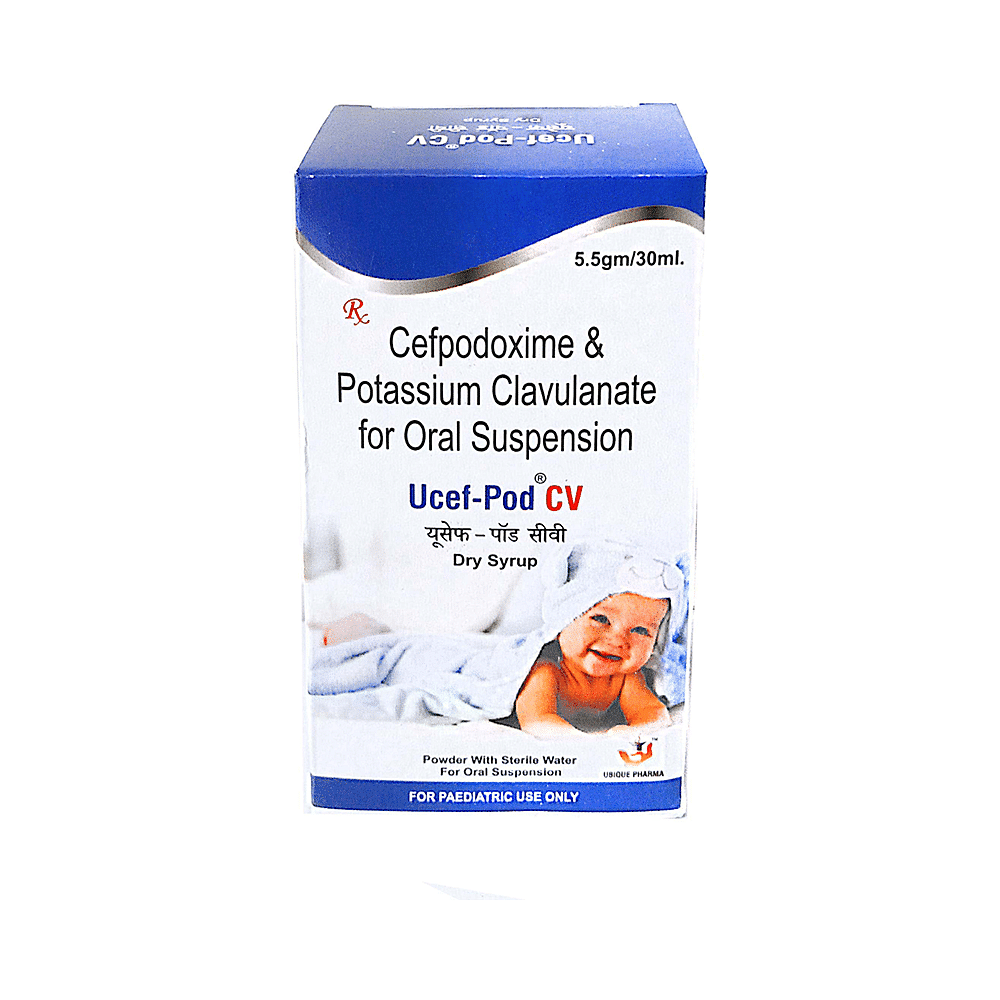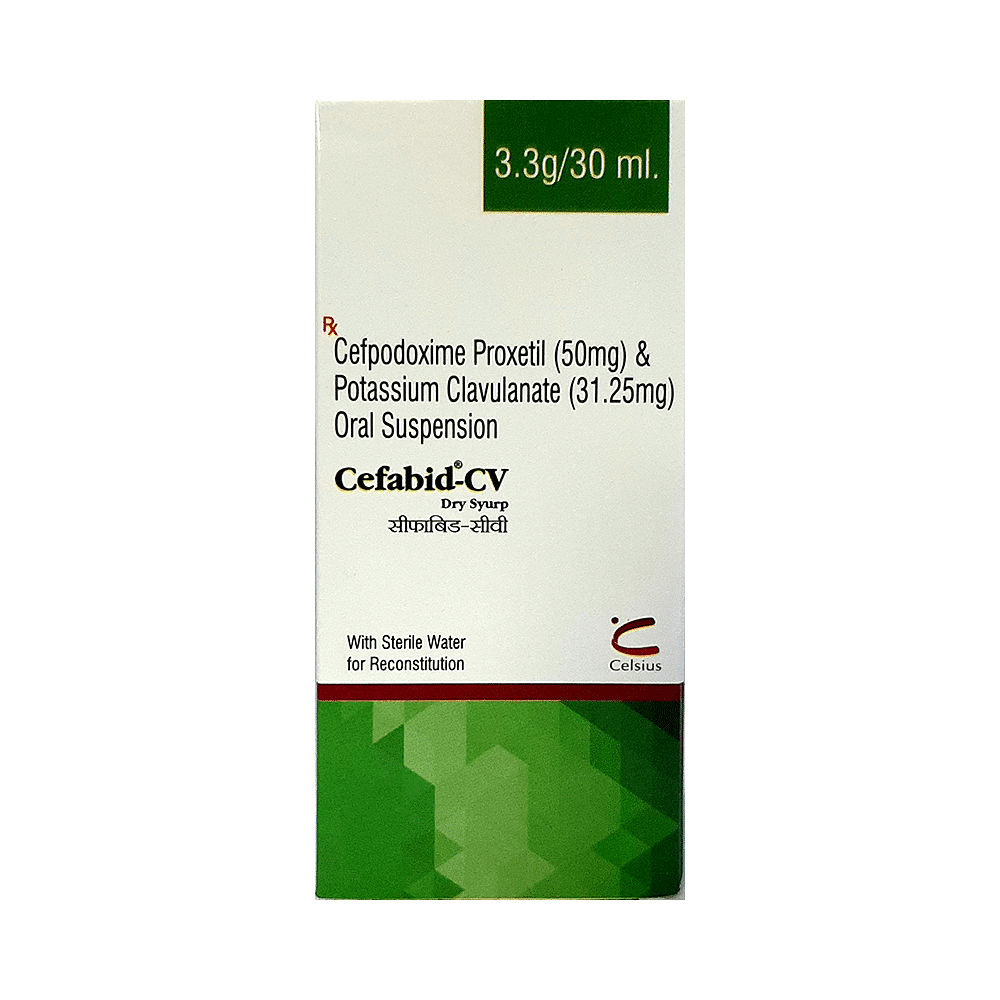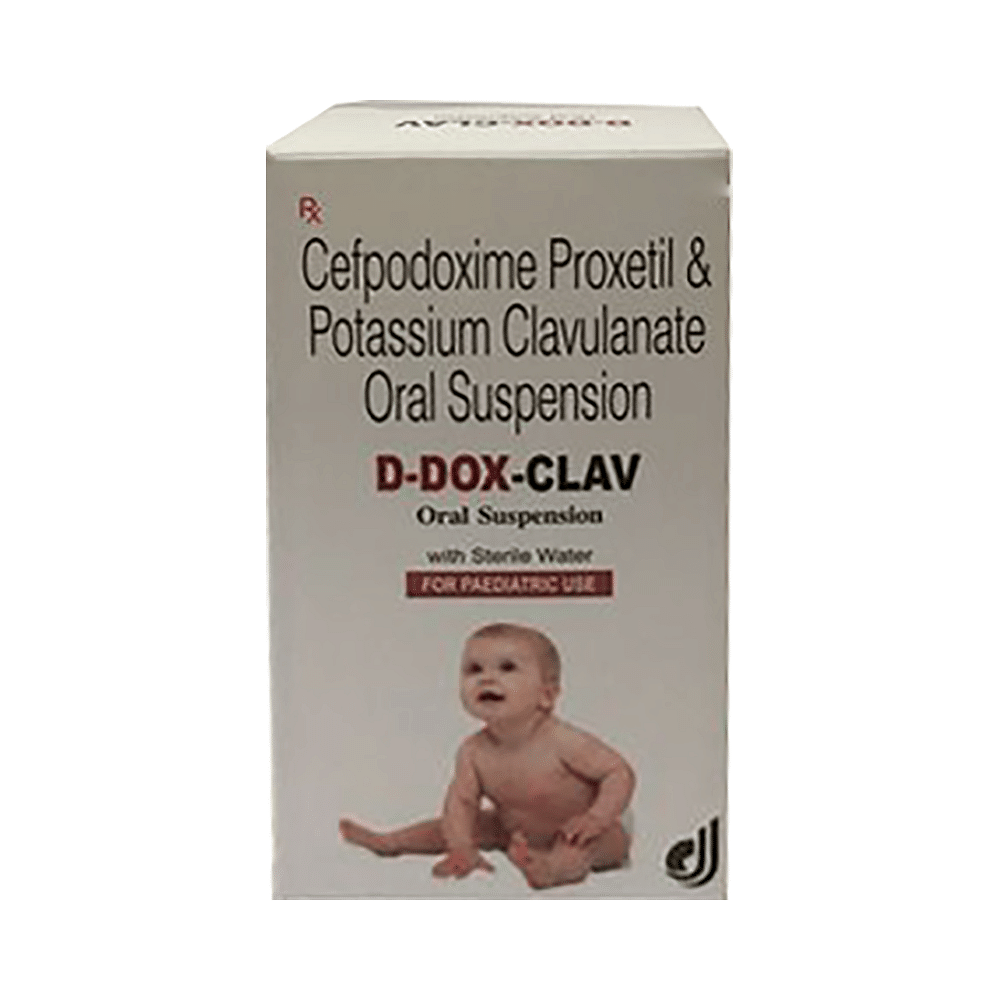
Belrica-CV Oral Suspension
Manufacturer
Advance Revive
Salt Composition
Cefpodoxime Proxetil (50mg/5ml) + Clavulanic Acid (31.25mg/5ml)
Key Information
Short Description
Belrica-CV Oral Suspension is a potent antibiotic used to treat severe bacterial infections in children, targeting the ear, throat, lungs, skin, and urinary tract.
Dosage Form
Oral Suspension
Introduction
Belrica-CV Oral Suspension is a combination of two active medicines, Cefpodoxime Proxetil and Clavulanic Acid. It is given to children to treat a wide range of severe bacterial infections. It works by inhibiting the growth of bacteria thereby preventing the infection spread.
Directions for Use
Belrica-CV Oral Suspension is a prescription-only medicine. It should only be given to children under the guidance of a doctor.
Safety Information
Side Effects
No common side effects listed.
How it works
Belrica-CV Oral Suspension is a combination of two medicines: Cefpodoxime Proxetil and Clavulanic Acid. Cefpodoxime Proxetil is an antibiotic that works by preventing the formation of the bacterial protective covering, while Clavulanic Acid is a beta-lactamase inhibitor that reduces resistance and enhances the activity of Cefpodoxime Proxetil against bacteria.
Related Medicines

Gudcef-CV Dry Syrup

Ripoxim-CV Dry Syrup

Zetacef-CV Oral Suspension

Greatcef-CV Oral Suspension

Anvipod-CV Dry Syrup Orange

Radipod-CL Dry Syrup

Ucef-Pod CV Oral Suspension

Cefabid-CV Dry Syrup

Pofidox-CV Plus Dry Syrup

D-Dox Clav Oral Suspension
Frequently asked questions
What if I give too much Belrica-CV Oral Suspension by mistake?
Belrica-CV Oral Suspension is generally safe, and an extra dose is unlikely to cause serious harm. However, exceeding the recommended dosage can increase the risk of side effects and worsen your child's condition. It is crucial to contact a doctor immediately if you believe your child has ingested too much Belrica-CV Oral Suspension.
Are there any possible serious side effects of Belrica-CV Oral Suspension?
Some severe side effects associated with this medication include persistent vomiting, kidney damage, allergy, diarrhea, and severe gastrointestinal infections. If you notice any unusual symptoms in your child, such as these, consult a healthcare professional immediately.
Can other medicines be given at the same time as Belrica-CV Oral Suspension?
Belrica-CV Oral Suspension may interact with other medications or substances. Before starting this medication, inform your child's doctor about all existing medications. It is advisable to consult with a healthcare professional before administering any medicine to your child.
Can I get my child vaccinated while on treatment with Belrica-CV Oral Suspension?
Antibiotics are generally not known to interfere with vaccine ingredients or cause adverse reactions in vaccinated children. However, children undergoing antibiotic therapy should avoid vaccination until they recover from the underlying illness. Once your child is feeling better, you can administer the vaccine.
Which lab tests may my child undergo while taking Belrica-CV Oral Suspension on a long-term basis?
To monitor your child's condition, their doctor may recommend periodic kidney function and liver function tests. This routine check helps assess the medication’s impact on these organs.
Can Belrica-CV Oral Suspension impact my child’s digestion?
Children often experience digestive upset while taking antibiotics. These medications can also disrupt the balance of good bacteria in their gut. Belrica-CV Oral Suspension may contribute to this disruption, potentially increasing the risk of other infections. If your child develops diarrhea during treatment with Belrica-CV Oral Suspension, do not stop the medication course and contact a healthcare professional for guidance.


